In the true global migration of wealth, “Singapore-Dubai-Hong Kong” are not three competitors on the same track, but rather three distinct “functional keys”:
Singapore manages “human order and education,” Dubai handles “human mobility and tax burdens,” while Hong Kong serves as the cross-border conduit for “capital and financial privileges.”
Understanding this division reveals the logic behind seemingly contradictory choices: sending children to Singapore, working in Dubai, and keeping assets in Hong Kong. This isn’t emotional migration but a strategic combination of risk management and efficiency.

I. Singapore:
The Elite Hub for “Education-Residency”
1. Why do parents send their children to Singapore?
Singapore’s “predictability” is a global rarity: safety, order, a bilingual environment, top-tier Asian basic education, and seamless Commonwealth university pathways—combining “Eastern discipline with Western-style opportunities.”
In terms of supporting services, Singapore boasts an exceptionally high density of professional family asset management services. Its family office and private banking ecosystems are mature, with a tax system primarily based on territorial taxation and clear compliance pathways.
Simultaneously, property “cooling measures” impose strong constraints on speculation. For instance, in 2023, the Additional Buyer’s Stamp Duty (ABSD) for foreign buyers was raised directly to 60%, aiming to guide housing back to its rational “residential purpose.” This objectively reinforces family-oriented demand for “education + long-term residency,” rather than capital arbitrage schemes focused on “quick entry and exit.”
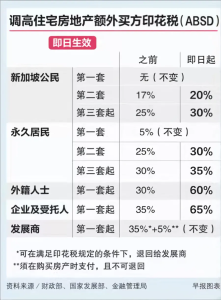
Source: Lianhe Zaobao
2. A Financial Hub, Yet More Like a Financial Services Market
Singapore excels in wealth management, family office services, and banking/trust capabilities rather than “primary capital market issuance.” Data shows that in recent years, the Singapore Exchange (SGX) has been at a clear disadvantage in terms of IPO volume and scale. In the first half of 2024, only one company listing on the main board garnered media attention.
In contrast, Hong Kong continues to actively pursue a larger IPO pipeline and secondary listing resources. This does not hinder Singapore’s financial intermediaries and custodial services from growing stronger; it provides the “toolkit” and “stewardship,” not the “trading floor.”
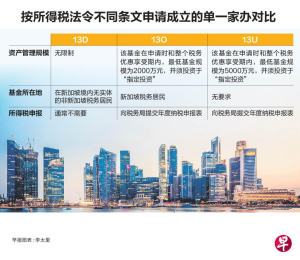
Source: Lianhe Zaobao
3. The Double-Edged Sword of “Low-Profile Compliance”: Extremely Rigorous KYC/AML
Singapore’s family office tax incentives (e.g., 13O/13U) and VCC fund structures attract numerous high-net-worth families. However, its anti-money laundering (AML) and KYC audit intensity ranks among the strictest in Asia.
The 2023 “S$3 billion money laundering case” that shook the market prompted banks and intermediaries to undergo comprehensive “retraining”—from periodic risk assessments and source-of-funds verification to transaction monitoring, with increased frequency and granularity. Financial institutions facing penalties have been widely reported.
This implies:
Attempts to “blur asset boundaries” or “discreetly liquidate assets” are unlikely to succeed in Singapore;
Genuinely compliant capital and structures will more readily secure stable services and implementation.
*Singapore: A “stable solution for people, education, and identity” + “high-standard compliance service hub.” It serves “those who already have wealth,” but discourages treating it as a “primary battleground for capital appreciation.” For families, children’s education and long-term stability are its primary selling points.
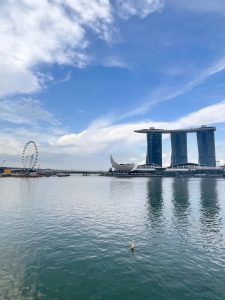
Figure: Singapore

II. Dubai (UAE):
A “low-tax, high-mobility” node for global liquidity
1. Core Selling Points Are Straightforward
Zero personal income tax (nationwide in the UAE); corporate tax at 9% starting 2023, though many free zones and specific arrangements maintain differentiated policies;
High flexibility in visa and company registration, combined with business expansion into the Middle East, Africa, and South Asia, creating a “rapid deployment, swift action” platform;
International lifestyle, convenient flight connections, and a strong sense of efficiency within concentrated professional circles.
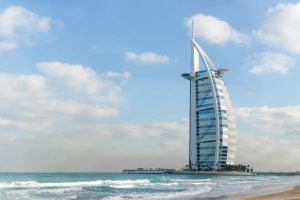
Source: Pexels
2. What Seems Like “Zero Tax” Is Actually “Streamlined Compliance”
In recent years, the UAE has continuously aligned with FATF (Financial Action Task Force) standards, exited the “grey list” observation period, and advanced KYC/AML protocols at the banking level.
For individuals, this means: While accounts are easy to open, suspicious transactions, unclear fund sources, or ambiguous cross-border links may trigger “suspensions for review.” This isn’t “no regulation”—it’s regulatory momentum catching up. Low taxes don’t equate to low scrutiny.
3. Extreme heat isn’t the issue; lack of community is the anxiety
Dubai’s society is predominantly expat-driven, with social circles forming and evolving rapidly. For entrepreneurs and transactional professionals, this is an advantage; however, families with children or those seeking a “steady, settled life” may feel the educational transition costs and community cohesion are insufficient.
This explains why many families adopt the “children in Singapore, parents based in Dubai” arrangement—combining education and stability in one location with business and flexibility in another, leveraging the strengths of each.
*Dubai: A super accelerator for “tax burden—visa—efficiency.” It equips ‘people’ with mobility but demands transparent funding sources and clear transaction narratives. Ideal for entrepreneurs and high-intensity business professionals focused on “pursuing opportunities, rapid experimentation, and quick failure.”
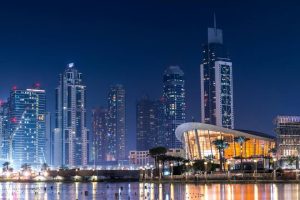
Image source: Pexels

III. Hong Kong, China:
Offshore Renminbi and the “Capital Privilege” Gray Keyboard
1. Hong Kong’s “sense of authority” stems from three main pillars:
The premier hub for offshore renminbi (CNH): Hong Kong has long been the world’s largest offshore renminbi market, accounting for over 80% of global trade settlements in renminbi.
CNH lending and related businesses continue to grow in recent years. This signifies a mature “gray keyboard” system connecting “renminbi denomination—dollar funding—global assets,” where pressing a key yields immediate response.
Institutional dividends from connectivity: Tools like Shanghai/Shenzhen-Hong Kong Stock Connect, Bond Connect, and Swap Connect establish a verifiable, auditable pathway between “onshore assets – offshore capital – global investors.” Renminbi can ‘legitimately’ go global, while US dollars can “silently” flow back. This is a channel, not just a slogan.
Policy Synergy for Wealth and Family Offices: The SAR government has relaunched and optimized the “New Capital Investment Entrant Scheme (CIES),” synergizing with tax exemptions for family offices and professional service networks to attract both people and capital. Starting in 2025, net asset review and calculation rules will be further relaxed—reducing the requirement from two years to six months and allowing investments through wholly-owned qualified companies to count toward the quota, significantly boosting efficiency.
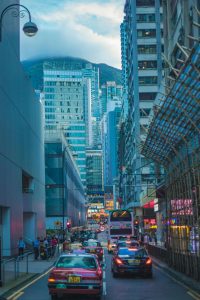
Source: pexels.com
2. “Small land area and high property prices” are not the focus; “scarce access channels” are the key
For high-net-worth individuals, the purchase is not merely “bricks and mortar,” but a comprehensive package of access channels encompassing status/corporate entities/family offices/trusts + multi-currency accounts + connectivity. Regardless of secondary market volatility, Hong Kong maintains substantial depth in IPO and secondary listing resources, asset management scale, and professional service supply:
2024–2025: HKEX continues “replenishing its inventory,” targeting secondary listings and dual primary listings from Southeast Asia and the Middle East, with an IPO pipeline showing signs of recovery.
Hong Kong’s asset management scale exceeds HK$31 trillion, and private equity funds surpass HK$1.7 trillion, reflecting the enduring strength of its asset management foundation.
*Hong Kong: A convergence point for “capital, tools, and permissions”—where you can seamlessly integrate “onshore names, offshore accounts, and global asset allocation” within regulatory frameworks. Its value lies in “connectivity,” not “speculation.”

Source: Pexels

IV. Three-Region Comparison:
Realigning “People, Capital, and Matters”
To avoid the false dichotomy of “which is better,” we analyze across three dimensions: family, business, and assets:
1. Family Level (Education/Residence/Stability)
Singapore: Offers safety, discipline, Commonwealth education pathways, and access to Asian resources. Provides the best overall value for education and long-term residency. However, it is unfriendly toward speculative real estate and ambiguous capital sources.
Dubai: International social circles, diverse educational systems, and flexible visas. However, cultivating a sense of “rootedness” and stable community takes time, requiring adaptation to intense heat and fast-paced migration.
Hong Kong, China: Comprehensive educational resources and international exam systems. Yet, degree and housing costs demand advance planning. Its strength lies in children’s future access to Greater Bay Area and global internship/employment networks.
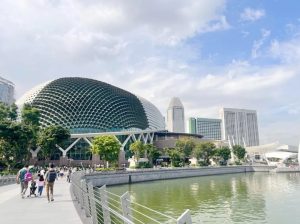
Photo: Singapore
2. Corporate Level (Tax Burden/Regulation/Market)
Singapore: Neutral corporate tax rates, world-class rule of law and business environment, favorable for services, asset management, and regional headquarters. However, its primary capital market is limited in scale, functioning more as a “wealth and service platform.”
Dubai: Combines zero personal tax with a 9% corporate tax rate, enhanced by free zones, visa flexibility, and extensive air cargo networks—ideal for “getting people in, getting things done, and closing deals.” However, compliance is accelerating, requiring clear accountability for accounts and capital flows.
Hong Kong, China: A one-stop solution for capital markets, professional services, and connectivity, suitable for enterprises and families requiring fundraising, M&A, bond issuance, and structured allocation. Synergy between CIES and family office policies creates a virtuous cycle where “people follow capital, and capital follows policy.”
3. Asset Level (Channel/Multi-Currency/Liquidity)
Singapore: Strong family offices/VCCs/private banking with high account compliance thresholds, ideal for long-term stable allocation and asset preservation.
Dubai: A global transaction and holding hub under a low-tax framework, particularly favorable for those involved in “commodities-foreign exchange-cross-regional supply chains.”
Hong Kong, China: CNH offshore hub + connectivity enables seamless switching between “RMB-USD-HKD-global assets,” ensuring cross-border capital flows have “clear pathways in and out”—this is the true value of “access.”
In summary:
Place children in Singapore for its “orderly environment—education—bilingual English+Mandarin focus”;
Position oneself in Dubai for its “low taxes—high mobility—opportunity density”;
Place financial settlement and asset allocation control in Hong Kong, China—where offshore RMB, connectivity, and asset management depth converge.
This isn’t an “emotional migration,” but a classic three-point layout for risk hedging and efficiency maximization.
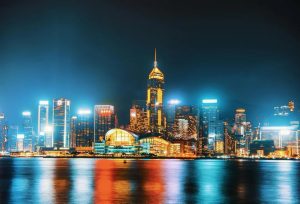
Source: Pexels
[Conclusion] A winner’s mindset prioritizes “network access and permissions” over “property prices and labels.”
If global asset allocation were a transportation network:
Singapore resembles a “disciplined, strict-clearance international campus city”—entrants adhere to rules in exchange for certainty in education and order;
Dubai functions like a “multi-runway hub airport” with dense routes and swift connections, ideal for seeking opportunities and linking markets;
Hong Kong, China, functions as a “cross-system gateway and clearinghouse,” where access rights across multiple currencies, regulations, and markets are calibrated and granted.
When you grasp that “education = human capital generating long-term cash flow, mobility = the time value of trading opportunities, and channels = systemic access rights for capital,” you’ll realize: “Children in Singapore, yourself in Dubai, money in Hong Kong” isn’t a novelty anecdote—it’s the statistically optimal solution for global families to synergize assets, identity, and careers.
Those who grasp this logic have long implemented structured arrangements; those fixated on “which city’s property prices are higher” often remain trapped in “asset form” thinking rather than “asset access rights.”
Note: Reference materials sourced from Lianhe Zaobao, The Straits Times, 21st Century Business Herald, 21st Century Business Herald Network, Global Times, and other publicly available news reports. Reproduction requires attribution; contact for removal if infringing.
